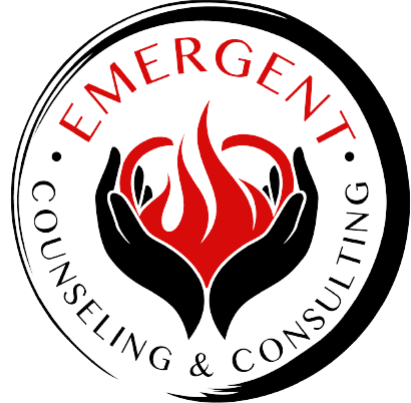We’ve all heard the saying, “Time heals all wounds.” But what if I told you that some of our most significant wounds stem from our childhood? These early experiences often shape our beliefs, behaviors, and emotional responses as adults, even though we may not consciously realize it. That’s where the concept of “inner child work” comes into play—a powerful tool for healing those unresolved childhood issues that can still impact us today.
In this blog, I’ll dive into why healing your inner child is crucial and how it can help you grow, no matter your age.
The Unseen Impact of Childhood Wounds
We all go through tough times as kids—whether it’s dealing with family struggles, bullying, neglect, or simply not having our emotional needs met. As children, we don’t have the tools to fully understand or process these experiences. Instead, we internalize them, which can create deep emotional wounds that we carry into adulthood.
These unresolved childhood issues often show up in our adult lives in subtle (and sometimes not-so-subtle) ways. Perhaps you struggle with low self-esteem, anxiety, or chronic relationship issues. Maybe you find yourself repeating the same patterns or making choices that don’t serve your highest good. In many cases, these behaviors are rooted in unresolved wounds from your inner child.
Think of it this way: If a child falls off their bike and no one is there to comfort them, they might develop a fear of bikes later on. They might even carry this fear into adulthood without fully understanding where it came from. Similarly, when we experience emotional pain in childhood, without the proper support or understanding, that pain can remain locked in our subconscious, influencing the way we react to life as adults.
What Is Inner Child Work?
Inner child work is a therapeutic practice that involves reconnecting with and healing the wounded child within. It’s about acknowledging those past hurts, offering compassion to that younger version of yourself, and providing the love and care that might have been missing back then. Inner child work can be transformative because it helps you address the root causes of your emotional struggles and empowers you to release long-held patterns that no longer serve you.
At its core, inner child work allows you to:
- Understand the origins of your pain: By reflecting on past experiences and reconnecting with your inner child, you can identify where certain fears, insecurities, and limiting beliefs started. This clarity helps you understand your adult behavior and responses in a new light.
- Reparent yourself: Often, inner child work is about becoming the loving, supportive parent you may not have had. It’s about offering yourself the care, validation, and love that you missed out on as a child. By learning to reparent yourself, you can heal old wounds and develop healthier emotional habits.
- Cultivate self-compassion: The process of working with your inner child is deeply compassionate. It encourages you to treat yourself with kindness, patience, and understanding—something that many of us were never taught to do growing up. When we’re kinder to ourselves, we open the door to healing and growth.
How Unresolved Childhood Issues Affect Us as Adults
As adults, unresolved childhood issues can influence many aspects of our lives. They might manifest in the following ways:
- Emotional Reactivity: If we’ve experienced neglect, trauma, or invalidation in childhood, we may find ourselves reacting disproportionately to certain situations as adults. For example, small disagreements with a partner could trigger intense feelings of abandonment or rejection, which stem from childhood experiences.
- Relationship Patterns: Often, the relationships we had growing up (with our parents, caregivers, or peers) set the stage for how we approach relationships as adults. If we were taught to suppress our emotions or never felt safe to express our needs, we might struggle with intimacy or feel unworthy of healthy, loving relationships.
- Self-Worth: If our childhood was filled with criticism or neglect, we might have internalized the belief that we are unworthy or not good enough. This can lead to low self-esteem, people-pleasing behaviors, or a constant need for external validation.
- Fear of Vulnerability: Many people who experienced emotional or physical harm as children develop a fear of vulnerability. They may close themselves off emotionally, avoiding intimacy or refusing to express their true feelings to protect themselves from potential pain or rejection.
The Benefits of Healing Your Inner Child
The journey of inner child healing isn’t always easy, but the rewards are well worth it. Here are just a few of the benefits that come with reconnecting with and healing your inner child:
- Increased Emotional Awareness: When you begin to heal your inner child, you’ll likely experience a greater awareness of your emotions. You’ll better understand the triggers that cause you to react in certain ways, and you’ll be able to navigate those emotions with more control and insight.
- Healthier Relationships: As you heal your inner child, you’ll develop a stronger sense of self-worth and healthier boundaries. This will positively impact your relationships, as you’ll be able to approach them from a place of emotional maturity and self-love, rather than fear or insecurity.
- Freedom from Past Patterns: Inner child work can help you break free from old patterns that no longer serve you. Whether it’s unhealthy coping mechanisms, destructive habits, or limiting beliefs, this work can help you rewire your brain and create new, empowering patterns of behavior.
- A Deeper Connection with Yourself: The more you work with your inner child, the more you’ll reconnect with your authentic self. You’ll rediscover what makes you feel alive, what you’re passionate about, and what brings you joy. This can lead to a more fulfilling and meaningful life.
Healing Isn’t Just for the Young
One of the most beautiful aspects of inner child work is that it’s never too late to start. Whether you’re in your 20s, 40s, or even 70s, you can still heal your inner child and create the life you deserve. The process might take time, and it might bring up some painful memories, but it’s worth it.
By healing your inner child, you open up the possibility for profound transformation. You allow yourself to move beyond the limiting beliefs and emotional wounds that have been holding you back. Most importantly, you give yourself permission to grow, evolve, and thrive—no matter what age you are.
If you’re feeling stuck or unsure about how to begin, consider working with a therapist who specializes in inner child healing. They can guide you through the process, providing the support and tools you need to nurture and heal that younger part of yourself.
Remember, healing is not a destination; it’s a journey. And on this journey, it’s never too late to grow.

